
The loud, unmistakable ‘deed-deed-deed-deed-er-ick’ call of the male Diederik Cuckoo Chrysococcyx caprius is a characteristic sound of southern Africa’s spring and summer landscape. Indeed, so distinctive is the call that the species’ common name is taken from it. The bird’s scientific species name, caprius, is thought to be a misprint of either cuprea (coppery) or capensis (from the Cape).
An intra-African migrant that follows the rains, the Diederik Cuckoo arrives in the subregion in September and October, possibly to coincide with the breeding season of its hosts. It belongs to the Cuculidae and, like many other members of that family, it’s a brood parasite, laying its egg in the nest of another species for the chick to be raised by the host until it can fend for itself.
Male and female Diederik Cuckoos differ in appearance, the males being more brightly coloured and having more distinct markings whereas the females are plainer and less conspicuous – although still with a certain beauty of their own. While a female will defend a territory within a colony of potential hosts, the males range across such territories, each one competing with other males for breeding access to the occupying female and attempting to convince the female that he is a suitable mate.
Bu hikaye African Birdlife dergisinin May/June 2021 sayısından alınmıştır.
Start your 7-day Magzter GOLD free trial to access thousands of curated premium stories, and 9,000+ magazines and newspapers.
Already a subscriber ? Giriş Yap
Bu hikaye African Birdlife dergisinin May/June 2021 sayısından alınmıştır.
Start your 7-day Magzter GOLD free trial to access thousands of curated premium stories, and 9,000+ magazines and newspapers.
Already a subscriber? Giriş Yap

EXPLORING NEW HORIZONS
Keith Barnes, co-author of the new Field Guide to Birds of Greater Southern Africa, chats about the long-neglected birding regions just north of the Kunene and Zambezi, getting back to watching birds and the vulture that changed his life.

footloose IN FYNBOS
The Walker Bay Diversity Trail is a leisurely hike with a multitude of flowers, feathers and flavours along the way.
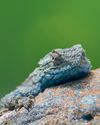
Living forwards
How photographing birds helps me face adversity
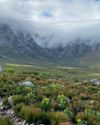
CAPE crusade
The Cape Bird Club/City of Cape Town Birding Big Year Challenge

water & WINGS
WATER IS LIFE. As wildlife photographer Greg du Toit knows better than most.
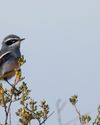
winter wanderer
as summer becomes a memory in the south, the skies are a little quieter as the migrants have returned to the warming north. But one bird endemic to the southern African region takes its own little winter journey.
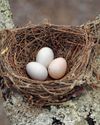
when perfect isn't enough
Egg signatures and forgeries in the cuckoo-drongo arms race

Southern SIGHTINGS
The late summer period naturally started quietening down after the midsummer excitement, but there were still some classy rarities on offer for birders all over the subregion. As always, none of the records included here have been adjudicated by any of the subregion's Rarities Committees.

flood impact on wetland birds
One of the features of a warming planet is increasingly erratic rainfall; years of drought followed by devastating floods. Fortunately, many waterbirds are pre-adapted to cope with such extremes, especially in southern Africa where they have evolved to exploit episodic rainfall events in semi-arid and arid regions. But how do waterbirds respond to floods in areas where rainfall - and access to water - is more predictable? Peter Ryan explores the consequences of recent floods on the birds of the Western Cape's Olifants River valley.
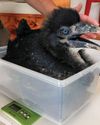
a star is born
It’s every producer’s dream to plan a wildlife television series and pick the right characters before filming.